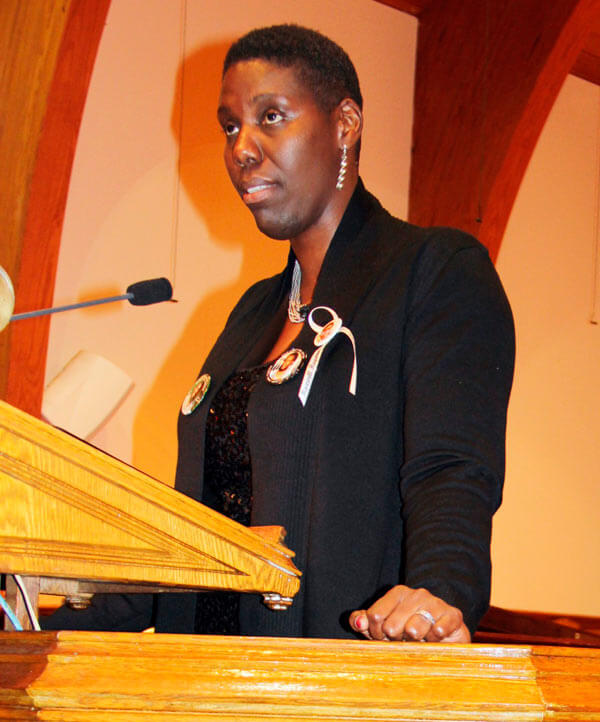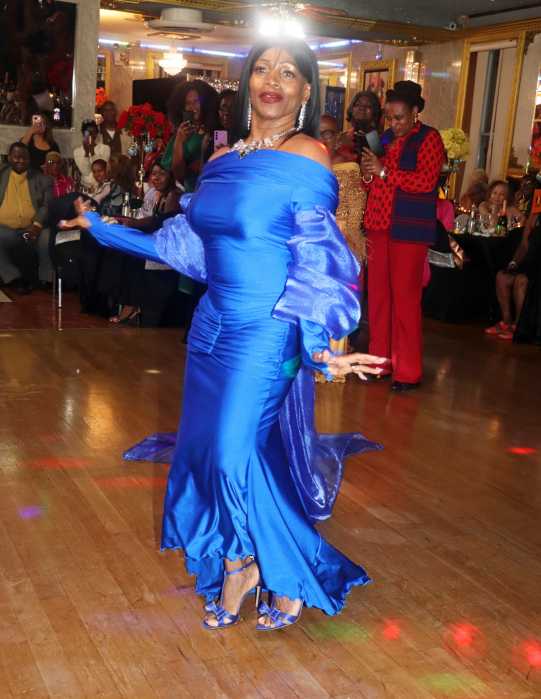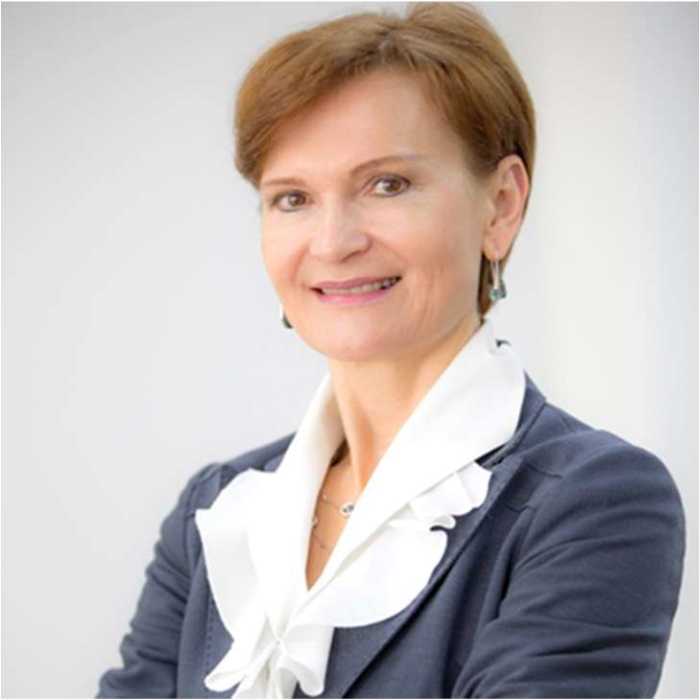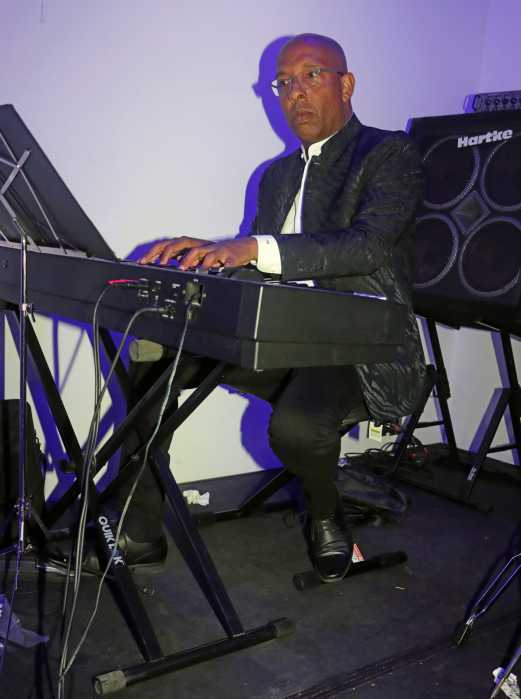In a very emotional tribute Friday evening, Sherill-Ann Mason Haywood eulogized her late husband and prominent Vincentian community activist Maxwell Iwaki Haywood, recalling when they first met to his last active days in the community in New York.
“As many of you here know, Maxwell had a very endearing personality. He was a genuine individual with a pure heart. He was one who gave you his undivided attention and always had something positive to share or say, even if it wasn’t what you wanted to hear at the time,” said Mrs. Haywood, director of the SEEK (Search for Education Elevation and Knowledge) program for students of disadvantaged backgrounds at Brooklyn’s Medgar Evers College, in her eulogy at St. Gabriel’s Episcopal (Anglican) Church on Hawthorne Street in Brooklyn.
“Maxwell was certainly a person who told it like it is, forcefully when needed, but always with a good heart, hoping that, with time, the individual would be able to see the logic and well-thought out words of wisdom, advice or caution,” added Mrs. Haywood, who had worked closely with her husband in the Brooklyn-based St. Vincent and the Grenadines Diaspora Committee of New York, Inc. “It was as though Maxwell was prophetic, seeing things long before most people were able to capture the essence of his message. It was often in the quiet of self-reflection that his words resonated most and made perfect sense.
“Maxwell accepted persons for who they were and always sought to be inclusive. This made him a natural people magnet,” continued Mrs. Haywood in the tribute, punctuated with standing ovations. “It was this magnetic quality that drew me and so many others to him in 1998 at the United Nations World Youth Forum in Portugal, where I first met him.
“There was an immediate attraction because of his intellect and passion for youth development,” she said. “To be honest, it didn’t hurt that he was a young, confident Black man from my homeland, St. Vincent and the Grenadines. We had several opportunities to discuss policy issues and global youth programs, and the working of his mind intrigued me, and I found myself seeking him out to strategize about the language we wanted to make its way into the final document.”
Mrs. Haywood described her husband as “a great teacher,” who had “willingly shared vital information and resources to increase my understanding of the issues.
“In fact, this is who Maxwell was every day,” she said. “He was always happy to share from his treasure throve of knowledge. What I did not yet know was that he was a human computer.
“Maxwell was one of those rare persons who studied religiously – not because he had to but because he loved to,” she added. “He was so well read that speaking with authority on countless matters came naturally. Luckily, he was not an information hoard and willingly shared information with anyone who wanted or needed it.
“In fact, once Maxwell knew of your interest, he would readily share what he knew with you,” she continued. “The Internet made his life so much easier, as he would flood you with information that was targeted to your particular interests, with the hope that it would make your work or life better.”
At the Youth Forum, Mrs. Haywood said she “had found an ally I would be able to work with in the future,” stating that he was “so passionate about his work and the development of St. Vincent and the Grenadines that we began fleshing out an idea to host a national youth symposium.”
She said Haywood “was always seeking to connect issues to action to address whatever challenges were in focus at the time.”
But she said, while she enjoyed working with him, she “secretly wanted to socialize outside of the conference, but that opportunity escaped me because he was called to an emergency meeting the one night we had decided to meet up during the conference.”
After the conference in Portugal, Mrs. Haywood said she and her future husband kept in touch to further develop the symposium.
“He in New York, and I in St. Vincent and the Grenadines. Our interactions quickly moved from a weekly email or call to a nightly call at a particular time,” Mrs. Haywood disclosed. “Maxwell was very disciplined; and so, he called me at a particular time every night.
“The call became so predicable that my brother John added a longer telephone extension cord to the family phone, as there were no cell phones at that time,” she said to laughter. “This would allow me to speak privately in my room. Everyone soon knew that they needed to make their calls before 10:00 p.m., because Sherrill would be on the phone for the next three hours.
“Maxwell and I talked for hours on end about every and anything, but most times about political and social issues that we both were passionate about,” she added. “Our interests in improving the conditions for the poor and working people were intense.”
As their relationship thrived, Mrs. Haywood said it “coincided perfectly” with her decision to attend college and return to school after an extended break after high school.
She said her husband made her decision to attend Medgar Evers College “an easy one.
“When Maxwell was done sharing his passion for Medgar Evers College, his alma mater, and impressing me about the dedicated faculty and staff and activism of the students and faculty, I was sold,” she said, stating that she was “also impressed with his own role in the students lock down of the campus in 1989 and the struggle to maintain the college’s four-year status.”
“May the man whom I called husband, comrade and best friend, the man who many of you loved and embraced as comrades and family live on in our lives,” she added. “May this visionary who has left us so soon to join the great ancestors, help to inspire us to greater action in the interest of the masses of people and the most vulnerable among us. Viva Maxwell. Rest in power and peace. Your memory will live on in all of our hearts.”




























